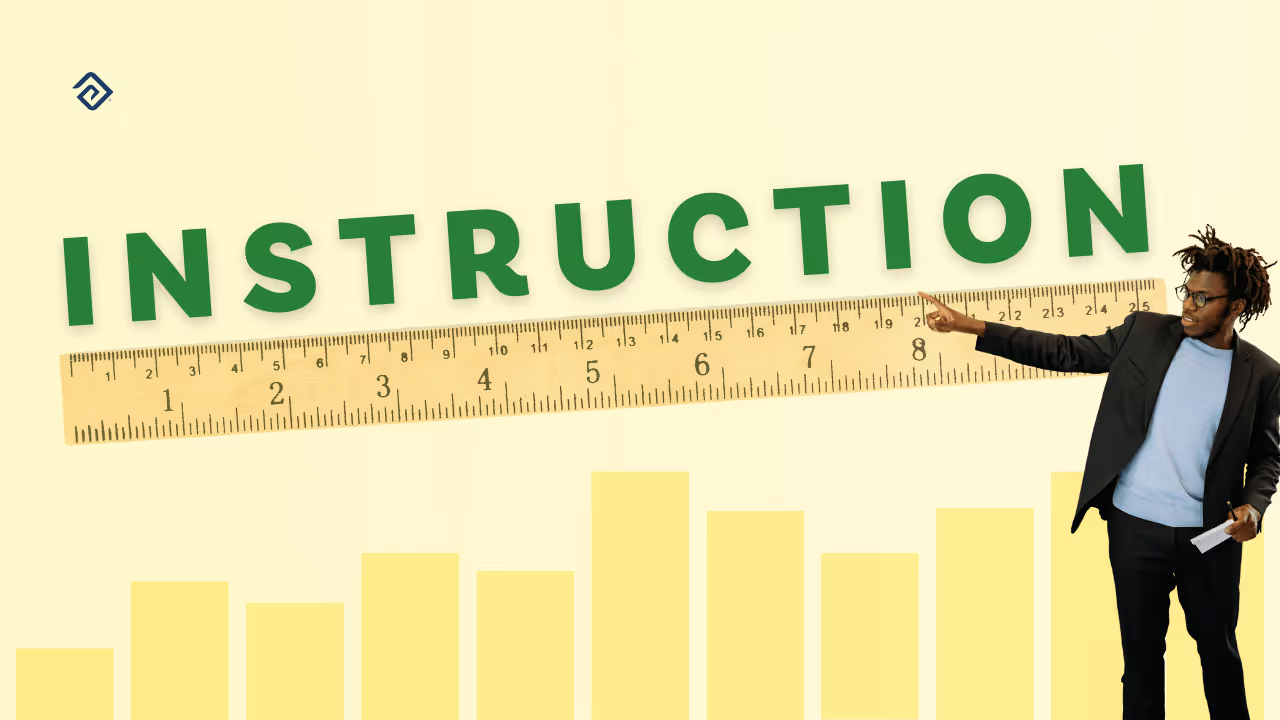Growth Mindset for Teachers: Professional Development Strategies
Growth mindset for teachers means believing they can enhance their abilities and intelligence through dedication and consistent effort. In addition to promoting a love for learning, a growth mindset also builds resilience—qualities that are important for tackling the daily challenges of the classroom.
When teachers embrace this development-focused approach, they open doors to personal and professional growth. Modeling a growth mindset benefits teachers and also creates a richer learning environment for their students.

What Is Growth Mindset in Education?
A growth mindset is important for teachers. differs significantly from a fixed mindset, where people believe their abilities cannot change. Teachers with a mindset of growth are more likely to embrace challenges and keep going when faced with setbacks. They also learn from feedback, which improves their teaching practices and sets a positive example for their students.
When teachers model a growth mindset approach in their teaching practices, they create an environment that encourages students to build perseverance and engage more deeply in their learning.
Differences Between Growth and Fixed Mindset Among Teachers
Understanding the difference between growth and fixed mindsets is essential for teachers because it directly affects their professional development and effectiveness in the classroom.
Beliefs About Ability
Teachers who embrace a growth mindset believe they can develop their skills and abilities through effort and learning, and they view adversities as valuable opportunities for improvement. In contrast, teachers with a fixed mindset see their abilities as innate and unchangeable, which often leads them to avoid risks and shy away from new approaches.
Response to Feedback
Teachers with a growth mindset are likely to seek feedback, seeing it as a useful tool for improvement. They tend to be open to constructive criticism and use it to refine their teaching practices. On the other hand, teachers who lack this growth mindset may view feedback as a personal attack or confirmation of their limitations, which can lead to defensiveness or disengagement.
Approach to Challenges
Teachers who adopt a development-focused perspective are likely to tackle difficult obstacles head-on. They recognize that struggle is a natural part of the learning process and are open to experimenting with new strategies. In comparison, teachers who are fixed in their mindset tend to avoid hurdles, often fearing failure or believing they are unlikely to succeed.
Impact on Collaboration
A growth mindset encourages collaboration among teachers. Those who believe in their ability to grow are likely to share ideas, seek help from colleagues, and participate in professional learning communities. Conversely, teachers with a fixed mindset may hesitate to collaborate, fearing that sharing their struggles could expose their weaknesses.
Long-Term Development
Teachers with a growth mindset are likely to engage in ongoing professional development. They often seek opportunities for learning and improvement, which can enhance their teaching effectiveness over time. However, teachers with a fixed mindset may become stagnant in their practices, which can limit their professional growth and effectiveness.

Benefits of a Growth Mindset for Teachers
A mindset of growth gives teachers important advantages, helping them face obstacles and adapt to the changing educational landscape. A few of these benefits include:
- Enhanced Adaptability: Teachers who adopt a growth mindset are better at handling difficulties. This resilience is important in a constantly evolving education environment.
- Continuous Improvement: A growth mindset encourages teachers to explore new strategies and methods. This dedication to lifelong learning often leads to improved teaching practices, as they are more likely to seek professional development, attend workshops, and collaborate with peers.
- Increased Job Satisfaction: Research shows that teachers with a growth mindset generally report higher job satisfaction. They tend to enjoy their work more and manage job demands better, which can reduce burnout and lower turnover rates. This ultimately helps schools retain experienced staff.
Strategies for Cultivating a Growth Mindset
Developing a growth mindset takes effort and a commitment to personal growth. By using the right strategies, teachers can build a mindset that welcomes challenges, builds resilience, and encourages ongoing learning and improvement for themselves and their students. Here are some strategies to help teachers develop a growth mindset.
Try New Activities and Embrace Mistakes
A growth mindset encourages experimenting with new ideas and approaches. Instead of focusing on success or failure, the goal is to learn from the experience.
Reflect on Learning
Allocating time for reflection helps deepen the understanding of new ideas. When teachers set aside time to consider their experiences during the learning process, they gain better insights. Regular self-reflection also helps teachers evaluate their teaching methods to see their strengths and areas that need improvement.
Use Ongoing Feedback
Regular formative feedback helps teachers continuously improve. Unlike final evaluations like performance reviews, formative feedback encourages ongoing growth and can be more helpful for teachers’ professional development.
Goal Setting
Teachers who set clear personal and professional goals can stay focused on improving their skills. Using SMART goals—specific, measurable, achievable, relevant, and time-bound—makes it easier to track progress and stay motivated.
Peer Collaboration
Working alongside colleagues encourages shared learning and growth, as team observations and feedback often create a supportive space for teachers to learn from one another.
Professional Development Opportunities
Schools can support a growth mindset among teachers by offering professional development opportunities like workshops and mentorship programs.
Workshops focused on growth mindset give teachers practical tools and strategies to use in their classrooms. These sessions often include interactive activities, discussions, and reflection exercises to help teachers understand the difference between fixed and growth mindsets. Teachers learn to take on obstacles, persist through setbacks, and view effort as key to mastering skills.
Workshops may also teach ways to create a classroom environment that encourages resilience and adaptability. By the end of these sessions, teachers leave with practical ideas they can apply right away to improve both their performance and job satisfaction.
Mentorship programs are also important in helping teachers adopt a growth mindset. Experienced teachers guide newer ones through the profession's challenges and share strategies for growth and improvement. This relationship builds a supportive atmosphere where teachers feel confident asking questions and trying new approaches.
Both mentors and mentees benefit from shared knowledge and experience, which reinforces the idea that learning is a continuous process.
Feedback Mechanisms for Growth
Effective feedback plays a big part in helping teachers develop. However, to truly support a growth mindset for teachers, schools need to use feedback systems that encourage learning and improvement.
Creating a Constructive Feedback Culture
A feedback system that focuses on growth instead of criticism helps teachers learn without feeling discouraged. When feedback is about improving, it’s easier for teachers to take it in and make changes. For example, supervisors should acknowledge teachers’ efforts, not just the final outcome, and administrators should create an environment that values effort, learning, and perseverance.
Using Student Feedback to Improve
Hearing from students gives teachers fresh insights into their teaching methods. By considering student perspectives, teachers can adjust their methods to keep students engaged and help them succeed.
Building a Brighter Future in Education Through Commitment to Growth
In addition to enhancing professional development, embracing a growth mindset for teachers also positively impacts students’ learning experiences. When teachers use strategies that promote perseverance, collaboration, and continuous improvement, they are more likely to succeed in their roles and inspire others.
To assist schools in building this essential mindset, our Staff Evaluation Software is designed to provide meaningful feedback and data-driven insights that enable teachers to continuously improve and succeed. A commitment to growth benefits everyone involved in the educational process—teachers, students, and the broader school community alike.
If your school is interested in new ways to improve the learning experience for children, you may also be interested in automating tasks and streamlining processes so that your teachers have more time to teach. Education Advanced offers a large suite of tools that may be able to help:
- Evaluation: A solution for documenting every step of the staff evaluation process, including walk-throughs, self-evaluations, supporting evidence, reporting, and performance analytics.
- Pathways: A graduation tracking tool that enables administrators and counselors to create, track, and analyze graduation pathways, ensuring secondary students stay on track to graduate.
- TestHound: Our test accommodation software helps schools coordinate thousands of students across all state and local K-12 assessments while considering various accommodations, such as for reading disabilities, physical disabilities, and translations.

More Great Content
We know you'll love




